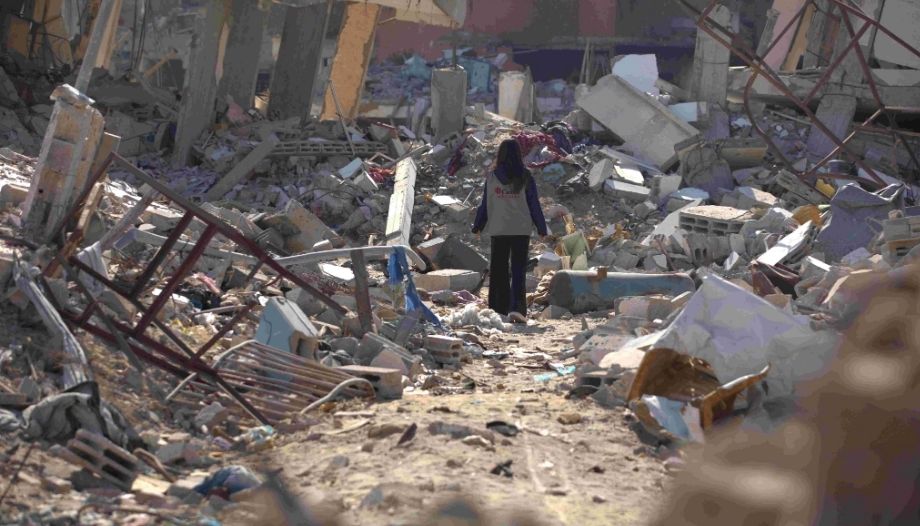The position of Pope Leo XIV and the Catholic Church on the announcement and evolution of President Trump's Gaza peace plan is hopeful. The Pontiff himself considered it "realistic" one day after being presented, on September 30. It was in a meeting with journalists at the gates of Villa Barberini, in Castel Gandolfo, shortly before returning to the Vatican for the Audience on October 1, according to the Vatican agency and collected Omnes.
Two weeks earlier, the Pope himself had expressed His "profound closeness to the Palestinian people in Gaza, who continue to live in fear and unacceptable conditions, forcibly displaced on their own land". Leo XIV renewed his "appeal for a cease-fire and the release of the hostages. To a negotiated diplomatic solution, to full respect for international humanitarian law". And at the same time, he intensified the request to pray the Rosary for peace in the world.
Caritas Jerusalem
After the announcement of the plan, there were the positive statements of Patriarch Pizaballa, even if it was "a first step, a first phase", but "now we have to rejoice for this important step", he said.
Caritas Jerusalem has also welcomed the announcement and the first news "with gratitude and hope". Its initial note recalled that "our Secretary General, Anton Asfar, expressed his deep relief and hope upon hearing the news of the agreement to end the war and release prisoners, detainees and abductees from both sides." Exactly, it read as follows:
"This morning we woke up to the news of the agreement to end the war and release prisoners, detainees and abductees from both sides. All our colleagues in Gaza are delighted with the news and are keen to help all those affected by the war: the patients, the victims and the bereaved in Gaza. In the next phase, we hope to rebuild the spirits of the people in the Holy Land, and specifically in Gaza."
Now, as new details about the agreements between Israel and Hamas (upcoming release of hostages, etc.) become known, Caritas Jerusalem welcomes this announcement "with gratitude and hope. We await details on the opening of all humanitarian corridors for the delivery of aid, and we reaffirm our unwavering commitment to stand by the people of Gaza as they begin the long road of healing, recovery and reconstruction."
Cardinal Pizzaballa thinks about reconstruction
Cardinal Pierbattista Pizzaballa, Latin Patriarch of Jerusalem and President of Caritas Jerusalem, cautiously notes: "There will certainly be other obstacles. But now we have to rejoice for this important step that will bring a little more confidence in the future and also a new hope, especially to the population, both Israeli and Palestinian. And now we finally see something new and different."
In his view, "now there will also be a new atmosphere for the continuation of negotiations, also for the whole life inside Gaza, which will remain terrible for a long time. But now we are happy. And we hope that this is just the beginning of a new phase in which little by little we can start thinking not about the war, but about how to rebuild after the war."
Medical and humanitarian aid
Caritas Jerusalem reports that its operations at five of the ten medical points, including its main medical center, had been suspended since September 22, 2025, when the evacuation in Gaza began.
As of yesterday, 102 Caritas employees continued their vital work in South Wadi (Gaza), operating in the five remaining medical points. In addition, three new medical points were inaugurated yesterday in South Wadi (Gaza) to further expand humanitarian aid.
The peace plan
Trump's peace plan includes twenty points to end the conflict between Israel and Hamas. It proposes an immediate ceasefire, followed by the release of the Israeli hostages still being held. Israel would withdraw its forces slightly, a technical withdrawal, to an agreed line as part of that first step. At the time of writing, Israel and Hamas had reached agreement on the first phase of the peace plan.







